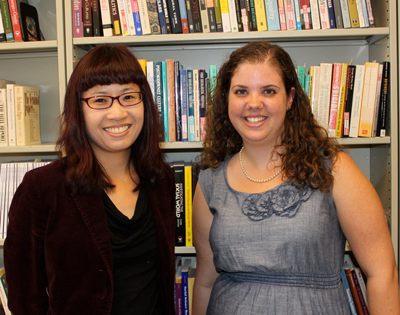Student Spotlight
Medical tourism transforms Panama

Sociology student’s thesis research focuses on medical professionals, not tourists
Rising health care costs in the United States has many Americans searching for less expensive, high-quality health care in foreign countries.
As many as 1.6 million Americans are expected to travel outside the United States to receive medical treatment by 2012, up from 750,000 such patients in 2007, according to consulting firm Deloitte, which tracks the trend known as medical tourism.
The medical tourism industry is well established in Asia, where hotels, hospitals and clinics court and cater to European patients. But Central America is on the rise as a closer-to-home alternative for U.S. citizens in need of health care – and Panama is rapidly growing as the main destination for American tourists seeking medical care.
Sociology senior Emilie Glass was awarded a 2011 Summer Undergraduate Research Fellowship to spend a month in Panama researching the impact of medical tourism on Panamanian locals. The data she collected while abroad will be the basis for her senior honors thesis.
“I administered questionnaires to doctors and other professionals working in the local health care arena,” she said. “I’ll spend the fall semester analyzing the data I collected.”
Her faculty advisor, Samantha Kwan, an assistant professor in the Department of Sociology, encouraged Glass to look beyond the usual methods of analyzing “outbound medical tourism” in order to concentrate on how the population receiving the influx of patients and payments is coping.
“Current research on medical tourism tends to focus on the perspectives of the medical tourist,” said Dr. Kwan.
“Emile's research examines how Panamanian medical professionals view medical tourism and its impact on the provision of local medical services.”
After returning to Houston, Glass decided to extend her project’s reach by examining the economic and governmental means that Panama is using to promote its medical tourism industry.
For instance, the Panama Tourism Authority provides all visitors to the Central American nation with free emergency medical insurance for up to 30 days. When tourists arrive at Tocumen International Airport just outside of the nation’s capital Panama City, they can pick up an insurance card and medical care brochures information booths.
Glass’ ultimate goal for her thesis is for it to become a candidate for a peer-reviewed published article. That is a strong possibility, Kwan said.
“Emilie’s research fills a gap in the literature by contributing important knowledge about the effects of this growing global phenomenon, particularly on disadvantaged populations,” Kwan said.
- Luis Zelaya